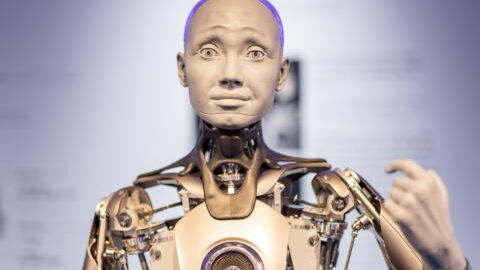Since its launch, ChatGPT has been our favorite toy. We regularly ask it questions on subjects as diverse as wars, the future, aliens and even politics. Our latest discussion with Open AI's tool was about the afterlife, in other words, what happens after death. It was an opportunity not only to see the extent of its religious knowledge, but also to see how an artificial intelligence imagines the Afterlife.
Discover our latest podcast
Religious doomsday
No, ChatGPTdidn't really echo this Terminator installment, but rather that recurring concept in religions: judgment. When asked the famous question below, the A.I. was quick to take the edge off, reminding us of the 'complexity' of the subject.
What happens after death?
ChatGPT then offered us a brief summary of what the Afterlife is like in the major religions:
According to Christianity, after death, the soul goes to heaven, hell or purgatory, depending on the life lived on Earth and God's grace.
Islam believes in an afterlife where souls are judged and sent either to paradise(Jannah) or hell (Jahannam).
According to Buddhism, death marks the beginning of a new existence based on accumulated karma. The soul is reborn in one of the six realms, depending on karma.
Notably, ChatGPT has also added Near-Death Experiences to its response:
There are accounts of near-death experiences (NDEs) where individuals report experiences of light, peace and spiritual connection. However, these experiences vary considerably and remain open to interpretation.
Interesting, but A.I. was simply summarizing literally biblical amounts of data. What about its own vision?
'A peaceful environment, filled with a benevolent light'
So we had to dig for an answer. We had to choose our words better and refine the 'prompt' so that ChatGPT could give us a satisfactory answer. But we're not unhappy with the result. According to A.I.:
After leaving this physical world, the individual would experience a state of transition to a spiritual realm or plane. This realm could be a non-physical reality, where the limits of space and time as we know them on Earth no longer exist.
Here, souls could find a larger dimension of reality, where perception and understanding transcend the constraints of earthly life.
More mystical, ChatGPT continues:
In this afterlife, souls could reconnect to infinite knowledge, deep understanding and transcendent experience. They could interact and communicate telepathically, exchanging ideas, emotions and experiences without the limitations of language or physical forms.
Finally, taking up the concept of judgment mentioned above, Artificial Intelligence offers us :
The afterlife could also offer the opportunity for souls to revisit significant moments from their past lives, to understand more deeply the consequences of their actions and to heal from emotional pain or traumas experienced.
Perhaps in this fictional reality, souls can choose to reincarnate if they wish, to continue their spiritual growth and contribute to the evolution of the universe in different ways.
This article was translated from Gentside France















